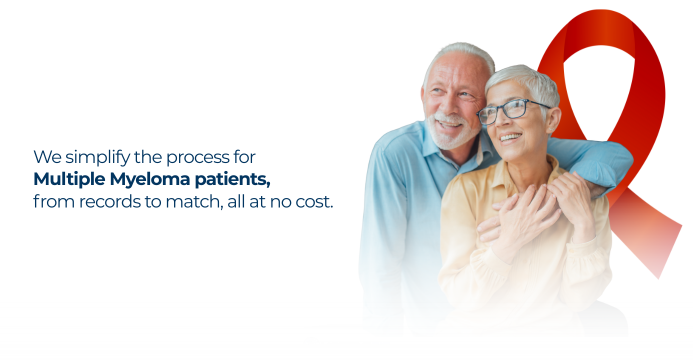Types
Multiple myeloma is a cancer of plasma cells in the bone marrow. Clinically, it’s described by how active it is and what it produces: active (symptomatic) myeloma, smoldering myeloma (SMM, a precancer with higher risk of progression), and MGUS (a low-level precursor). Subtypes include light-chain myeloma, non-secretory myeloma (little or no measurable protein), and cases with disease outside the bone marrow (extramedullary). Doctors also classify myeloma by stage (R-ISS) and by the type of monoclonal protein (e.g., IgG, IgA, light chain).
Symptoms
Common problems include bone pain (especially back or ribs), fractures, anemia with fatigue or shortness of breath, frequent infections, high calcium (thirst, constipation, confusion), kidney issues (swelling, reduced urine), and tingling or numbness from nerve damage. Some people have no symptoms at first and are found through abnormal blood tests.
Causes
The exact cause is unknown. Risk increases with older age, a history of MGUS or smoldering myeloma, certain inherited tendencies or family history, obesity, and exposure to ionizing radiation or specific chemicals. Having risk factors does not mean myeloma will develop, but they can raise the likelihood.
Treatments
Treatment is individualized based on stage, symptoms, kidney function, genetic features, and overall health. Options often combine several medicines: proteasome inhibitors (e.g., bortezomib, carfilzomib), immunomodulatory drugs (e.g., lenalidomide), corticosteroids (dexamethasone), and monoclonal antibodies (e.g., anti-CD38). Eligible patients may receive autologous stem cell transplant. Radiation can relieve painful bone lesions, and bone-strengthening therapy (bisphosphonates or denosumab) helps protect bones. For relapsed or refractory disease, advanced immunotherapies such as CAR-T cells or bispecific antibodies may be considered.
Support
Supportive care is essential: medicines for bone protection and pain control; infection prevention (vaccinations and antibiotics when appropriate); careful kidney management (hydration and avoiding harmful drugs); treatment of anemia, neuropathy, and blood-clot risk; plus nutrition counseling, exercise/rehabilitation, and psychosocial support for patients and caregivers. Ask about clinical trials that may offer access to new therapies.
To enroll in clinical trial, you must meet highly specific criteria that’s established by the researchers who are conducting the investigation. That includes detailed information about type of cancer, treatment history, response to treatment, and other data that is collected in medical records.
If you are being treated for cancer or any other disease, your doctor should have a complete record of your medical care, including specific information about what form of the disease you have and what treatments you have received. Your patient relations coordinator will contact you and inform you about the details.
Massive Bio provides its services to the patients and their doctors at no cost—you won’t have to pay anything to receive a clinical-research matching report. There are no hidden costs involved.
Massive Bio strictly adheres to all HIPAA guidelines and international regulations focused on maintaining your privacy. We take extra measures to secure your personal information, ensuring it is protected beyond the mandatory requirements.
Your doctor may know of a clinical research study being conducted in your area that’s recruiting participants and is right for you. However, Massive Bio uses its artificial intelligence powered platform to match patients to clinical research studies that give you the best chance of a positive outcome and are being conducted in a geographical location that makes sense for you.
Yes, Massive Bio keeps your doctor up to date on your status throughout your participation.


